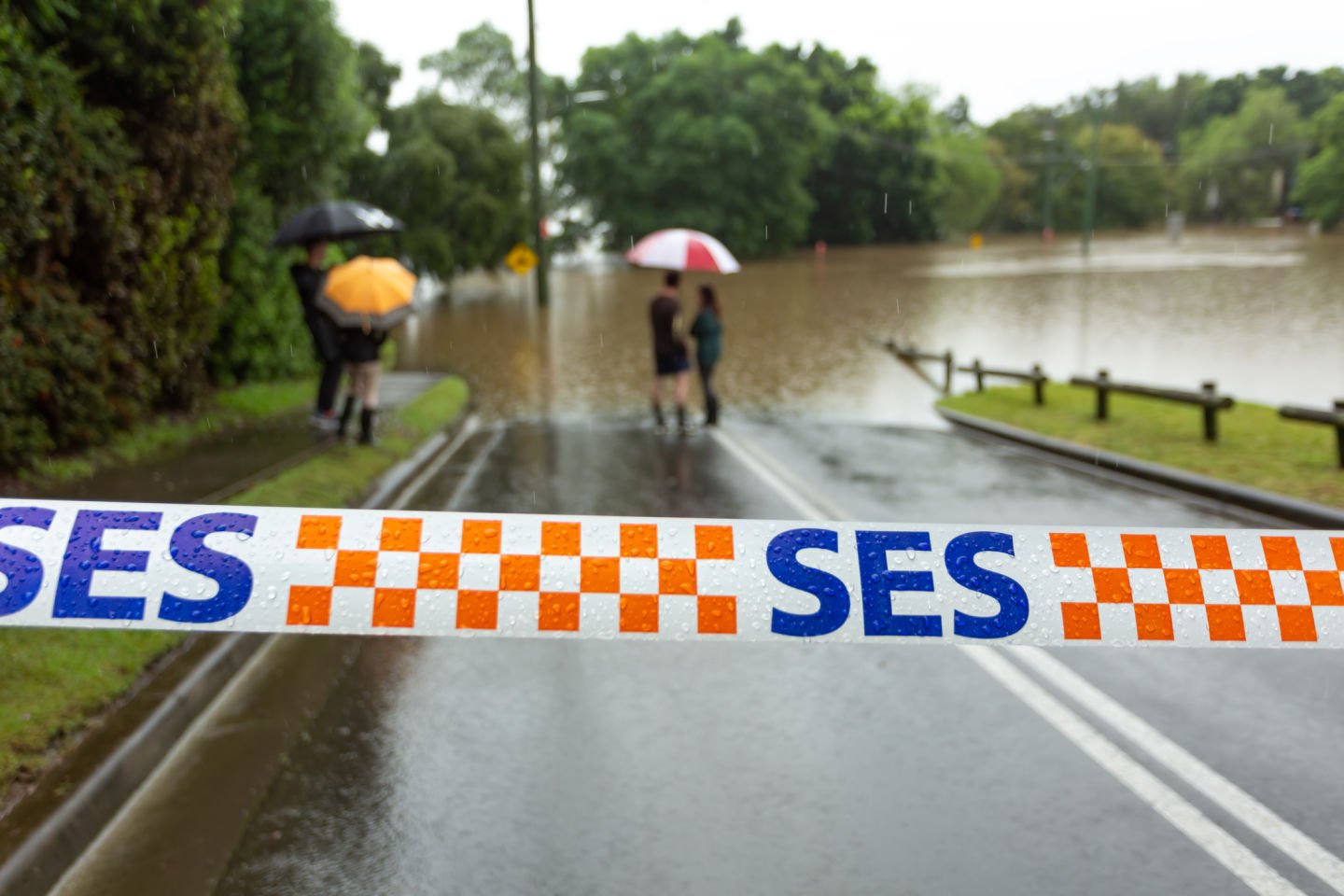What to do when a weather event strikes
Floods, cyclones, and fires are a reality of life in Australia. The best we can do is know what to do before, during, and after the event.

Important links and phone numbers
In a life-threatening situation, call the police, ambulance, or fire service on 000.
To contact the State Emergency Service, call nationwide 132 500, or visit:
The extreme weather events that have already hit across Australia this summer –including bushfires, floods, and storms – should serve as a reminder that natural disasters can cause extensive damage and loss of human life.
Cyclone Jasper and the sustained heavy rainfalls that followed, wreaking havoc in Far North Queensland, and the bushfires that have affected several states over the past weeks, highlight the importance of preparedness, emergency response, and having adequate insurance coverage.
With this in mind, here are some important tips on what to do in the lead-up to, during, and after an emergency. You can find more details on our emergency information page here.
Authorities recommend the following steps in the event of dangerous weather conditions:
Stay informed: Keep abreast of weather forecasts and warnings issued by local authorities. Take note of emergency alert systems on your mobile devices – authorities in Cairns were issuing regular updates by SMS and email – and pay attention to official announcements on radio and television. ABC Local Radio is especially useful in times of emergency, so make sure you have an AM receiver and batteries to power it. If you are ordered to evacuate, do so. If you remain in place, it could create an unnecessary extra burden for emergency services personnel.
Create an emergency kit: Assemble a comprehensive emergency kit including essentials such as non-perishable food, water, medications, important documents, and first-aid supplies. Ensure you have enough supplies to sustain your family for at least 72 hours.
Evacuation plans: Familiarise yourself with evacuation routes and locations of emergency shelters in your area. Have a family emergency plan in place, including communication strategies and meeting points. If you live on your own, keep in touch with neighbours, and relatives. If you are frail or have mobility issues, it may be best to move somewhere safe well ahead of any expected event.
Secure your property: In the face of approaching storms, secure loose objects, board up windows, and reinforce doors to minimize potential damage. Trim overhanging branches and secure outdoor furniture to prevent hazards. If a fire is approaching, do what you can to limit the amount of fuel it has to consume.
In the event of damage to property, insurance is a crucial resource for recovery. To expedite the claims process, follow these steps:
Document the damage: Take clear photographs and videos of the damage to your property. Create a detailed list of items affected, including structural damage and personal belongings.
Contact your insurance provider: Report the incident to your insurance company as soon as possible. Remember that they will be busy, but they will add extra resources to cope with the demand, including having assessors on the spot in the aftermath of a major event. Provide them with the necessary information and ask about the specific documents they require for the claim.
Assessment process: Insurance assessors will be dispatched to evaluate the extent of the damage. Cooperate fully during this process, providing additional information and documentation as requested.
Keep records: Maintain copies of all communications with your insurance company, including emails and phone calls. Retain receipts, invoices, and any other relevant documents that support your claim.
Temporary accommodation: If your home is uninhabitable, keep records of additional living expenses incurred during temporary accommodation. This may include receipts for hotels, meals, and other necessities.
Don’t be afraid to reach out within your community. You’ll be surprised how people you’ve never even met will be willing to assist.
One thing that is as predictable as a summer storm is the fact that most Australians are ready, willing, and able to help each other through tough times.
These include organisations such as the Salvation Army (13 72 58), who can offer practical assistance. If you just need to talk to someone, contact Lifeline (13 11 14).




